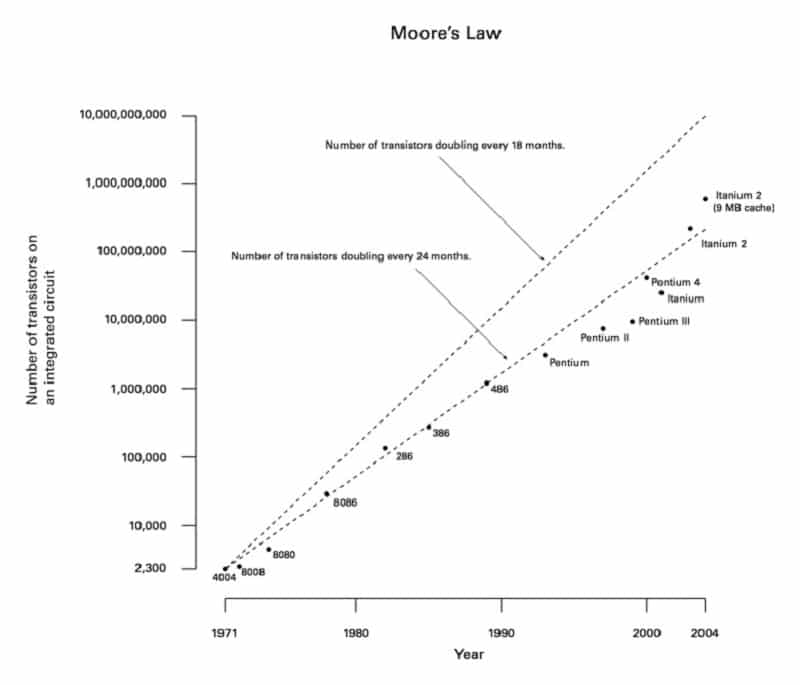Intel Admits End to Scaling and Moore’s Law
Samuel Wan / 9 years ago

Even though everyone has pretty much already seen the writing on the wall by now, Intel has remained staunch publicly. At long last, the chip giant is admitting that scaling will have to rely on improvements other than clock speeds. In fact, Intel is going as far to say that the future of semiconductors will rely on technologies that reduce power consumption rather than performance.
According to William Holt, the head of Intel’s Technology and Manufacturing Group, the semiconductor industry will see “major transitions” and the new technology will be “fundamentally different.” In order to continue moving forward, most of the new technologies mostly present a reduction in power consumption but at the cost of clock speeds due to lower switching speeds. This means all performance gains will have to come from improved IPC, new instruction sets and more cores.
With industry leader Intel already having delayed both 14nm and 10nm, it looks like silicon is nearing the end of the road. Even with the use of problematic EUV, the move to alternatives like lead telluride, carbon, Indium antimonide and indium gallium arsenide will likely happen within the decade. Even without major performance gains though, there is going to be a lot of excitement as laptops and mobile devices get better and better battery life.



















